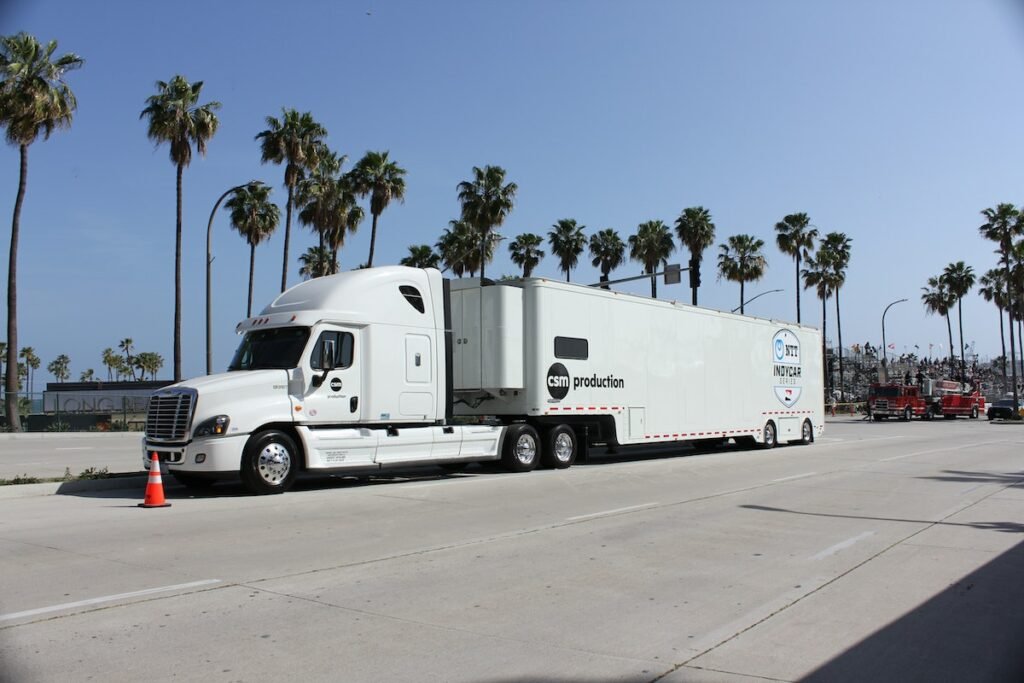Trailers, which are typically towed by cars, trucks, and other types of vehicles, have greatly evolved throughout the years to satisfy the needs of various industries. The following are some of the common types of trailers and how they were developed.
Utility Trailers
One of the earliest types of trailers is utility trailers, also referred to as general-purpose trailers. They were used for transporting goods, materials, and other items and were placed behind vehicles. Primarily, these trailers, which are made of metal or wooden beds, are used for agricultural purposes, such as transporting equipment or crops.
Flatbed Trailers
Flatbed trailers were initially created for transporting huge loads or items with irregular shapes. These trailers, which have open, flat cargo areas, are commonly used in transportation, manufacturing, and construction industries.
Essentially, the early versions of flatbed trailers were simply flat platforms on wheels, however, they have greatly evolved ever since. Now, we can find flatbed trailers in various designs and unique features for keeping the cargo well-secured.
Reefer Trailers
Also known as refrigerated trailers, reefer trailers were designed for transporting temperature-sensitive cargo like chemicals, pharmaceuticals, and perishable goods.
These trailers come with refrigeration units to ensure that the required temperature can be maintained while traveling on their journey. Hence, the quality of the items can be preserved and are always safe.
Enclosed Trailers
With enclosed trailers, you can always ensure that all your items are well-secured and protected while they are being transported. These trailers are enclosed with roofs and walls which can provide security and protection to your goods throughout the journey.
They can protect your items against potential theft and from various elements. Typically, enclosed trailers are used for transporting sensitive and valuable items such as electronics, furniture, as well as products that are intended for trade shows.
Tanker Trailers

Most probably, you have seen tanker trailers traveling on the road carrying gases and liquids in bulk, such as chemicals, and petroleum products, as well as food-grade liquid products such as juices and milk.
These trailers come with specialized tanks to help prevent any spills and leaks while assuring their safety throughout their journey.
Car Hauler Trailers
Just as the name says, car hauler trailers are essentially used for transporting several vehicles including motorcycles, trucks, or cars. These trailers can include numerous decks or levels as well as specialized tie-down systems to secure the vehicles in place.
Livestock Trailers
Specifically designed for transporting animals, such as pigs, horses, and cattle, livestock trailers are equipped with loading ramps, ventilation, and partitions. These things can help in ensuring the comfort and safety of the animals while they are traveling.
Specialized Trailers
Through the years, transportation needs, and various industries have evolved, as a result, different types of specialized trailers have also emerged. This includes expandable or modular trailers, lowboy trailers or trailers developed for carrying heavy machinery, as well as trailers that are intended for specific industries such as agriculture, logging, military, and others.
Innovative Technologies
Trailer technology is constantly evolving, in fact, most of its recent developments include special features such as telematics for tracking and monitoring, modern braking systems, air suspension systems, as well as aerodynamic enhancements for improving fuel efficiency.
To accommodate the changes in safety regulations, transportation demands, and technological advancements, trailers have continued to evolve. As logistics and industries continue to get more complicated, trailer capabilities and designs must be able to adapt to these needs.
How to Choose the Right Truck Trailer for You

If you are transporting goods, materials, and other items regularly or you are involved in the transportation industry, then it is important that you know how to choose the right type of truck trailer for you.
Your choice will greatly depend on several factors such as the cargo that you will be transporting, your special needs, as well as the local regulations implemented in your area.
The following is a step-by-step guide that can help you in making a well-informed decision when it comes to choosing the right type of truck trailer that suits your needs.
- The type of cargo you will be transporting – First, you need to determine the type of cargo that you will be transporting. Will you be carrying livestock, heavy machinery, liquids, heavy machinery, refrigerated items, dry goods, etc. The type of cargo that you will be transporting will greatly influence your choice of trailer.
- Compute payload capacity – After determining your cargo type, the next thing to do is to compute its volume and weight. Be sure to choose a trailer that has the capacity to carry your goods comfortably and safely while obeying weight regulations.
- Evaluate trailer types – Research about the various types of trailers as well as their special features, including flatbed trailers, dry van trailers, tank trailers, reefers or refrigerated trailers, drop-deck trailers, car hauler trailers, and many. Each trailer type has its own benefits and disadvantages.
- Using specialized trailers – If the cargo that you will be transporting has special requirements, for instance, unique handling for hazardous materials or specific temperature for perishables, then you should choose specialized trailers that are intended for this specific purpose.
- Choose appropriate trailer size – Choosing trailer size will greatly depend on the dimensions of your cargo. So, be sure to accurately measure the length, height, and width of the trailer to guarantee that it can accommodate your goods and within legal requirements.
- Verify axle configuration – Keep in mind that the number of axles as well as their configuration can greatly affect the load-bearing capacity and weight distribution of your trailer. So, be sure that it fits to your cargo requirements and adheres with local regulations.
- Features of the trailer – To make sure that your cargo is transported safely, securely, comfortably, and more efficiently, you should consider the special features of the trailer. This includes multiple axles, side doors, lift gates, as well as other special accessories that can help in making transporting, loading, and unloading your items easily. It can also ensure that your cargo will be kept secure and protected.
- Setting a budget – Whether you want to lease or purchase a trailer, it is important that you must determine your budget. Take note that choosing specialized trailers or trailers that include special features are more costly upfront, however, you can take advantage of their long-term benefits.
- Legal compliance – Make sure that the trailer you choose adheres with the federal, state, and local regulations, which includes safety requirements, size limits, and weight restrictions.
- Think about the resale value – Verify how much would be the potential resale value of the trailer. This is vital since this can impact on your long-term cost of ownership. If you have a prominent and well-maintained trailer, then most likely, you can retain its value.
- Search for reliable dealers and manufacturers – Be sure to choose dealers and manufacturers that have a good reputation, excellent customer support, and a long history of high- quality products.
- Durability and maintenance – Choose trailers that are built with sturdy materials and construction so you can maximize their lifespan, while minimizing their maintenance costs.
- Inspection and test drive – If allowed, you should try inspecting or do a test drive on the trailer before finalizing everything. This can ensure that the trailer fits your needs and meets your expectations.
- Examine warranties and after-sales support – Be sure to review the warranty provided by the manufacturer and check also if after-sales support and service are available.
- Ask for expert advice – If you are having doubts with your trailer requirements, then you should seek advice from industry experts, fleet managers, and experienced truckers. They can provide you with some guidance and recommendations.
Conclusion
Selecting the right truck trailer is an important decision to make since this can create a huge impact on the profitability and efficiency of your transportation needs. That is why you should make a thorough research, take all the time you want, and consider all the important factors needed in making a well-informed decision.
Van Raden Industries LLC specializes in manufacturing and repairing vehicle trailers. For more information, you can call us at 503-288-7878 or send us a message at wvanraden@aol.com.



